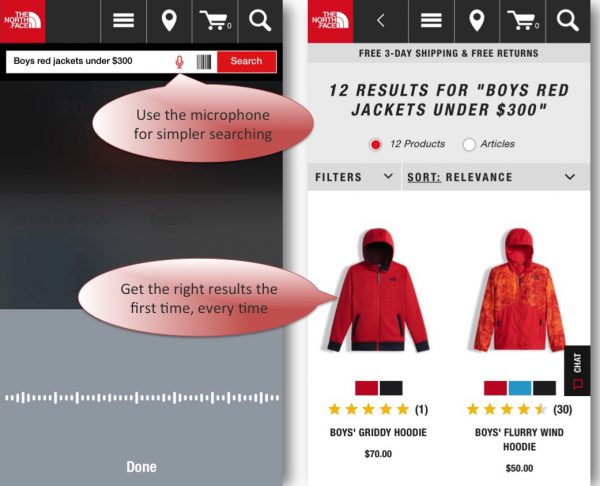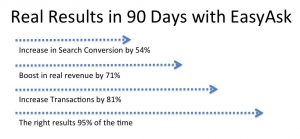In the world of online shopping, your site search box is like your personal shopper. You know, like the ones who ask you, “How may I help you?” when you walk into a department store.
In the real world, if you’re asked that, you’re going to tell them how they can help you. But in the eCommerce world, most of the sites you go to can’t help you the way a personal shopper can. Why? Because of Keyword Search limitations, and the fact that most people don’t know what’s possible with their eCommerce Site Search.
In the early days of the Internet, way back in 1995, the Keyword attribute was popularized by search engines like AltaVista. But even as early as 1997, which was 15 years ago, they discovered keyword search was unreliable. But people still continue to use it! Why?
Yahoo! and Google…
If you use a long-tailed search (i.e. “Women’s black long-sleeved dresses”), the chances of your search returning the right product, are very slim. And now you’re reduced to clicking through page after page to try and find what you want. Or, if you’re like me, you leave the site altogether.
Let’s flip it around and compare it to real life. What if you told a personal shopper that you wanted a “Women’s black long-sleeved dress,” and she returned with long-sleeve shirts, coats, jackets, short-sleeve dresses, strapless dresses, etc. You would look at her like she’s… how do I put this nicely?… AN IDIOT. Because you made it clear you what you wanted and she didn’t understand you.
You wouldn’t accept this in real life, so why are you accepting this with eCommerce websites? Because you’re used to it? That’s just ridiculous, especially when your eCommerce Site Search has the ability to understand the entire intent and context of your request.
If you’re using the right technology…
Natural Language/Semantic Search has been around for years, but has not gained steam until fairly recently with IBM Watson and Siri on the iPhone. It’s a SMARTER and FASTER search than Keyword, and can understand long-tail searches, price constraints, and synonyms. Flip-flops, sandals, thongs, slippers are all the same thing, you know it, I know it, your search box should know it.
It’s time to stop accepting below-average as the norm. Upgrade your eCommerce Site Search to a Natural Language Engine. EasyAsk has done wonders with companies Large (Lands’ End) and small (Schuler Shoes).
Take a look for yourself and see what can be accomplished with the right Searchandising tool.


 The world we know continues to change, and we as a people, are forced to change with it. Sometimes it’s in small ways, like swapping Bell Bottoms for White-Washed jeans, then swapping those for Skinny Jeans. Sometimes it’s in larger ways, like going from hailing a cab on the sidewalk, to ordering an Uber from your bedroom/office/etc. with a touch of a button. Some of us prefer the former, while others have adapted, or were even raised with the latter. It is those inbred traits from our particular generation that make us who we are. The beauty of today’s age is that our technology can handle whichever you prefer. Can your
The world we know continues to change, and we as a people, are forced to change with it. Sometimes it’s in small ways, like swapping Bell Bottoms for White-Washed jeans, then swapping those for Skinny Jeans. Sometimes it’s in larger ways, like going from hailing a cab on the sidewalk, to ordering an Uber from your bedroom/office/etc. with a touch of a button. Some of us prefer the former, while others have adapted, or were even raised with the latter. It is those inbred traits from our particular generation that make us who we are. The beauty of today’s age is that our technology can handle whichever you prefer. Can your 
 Why we worry about your eCommerce Site Search
Why we worry about your eCommerce Site Search
